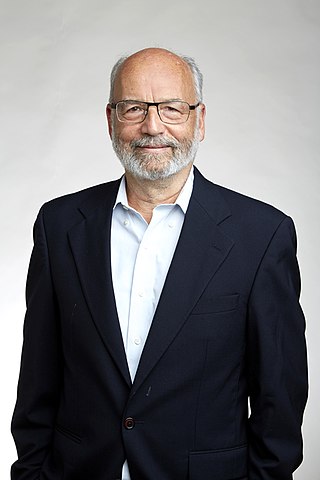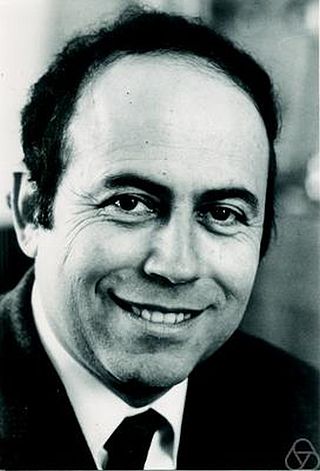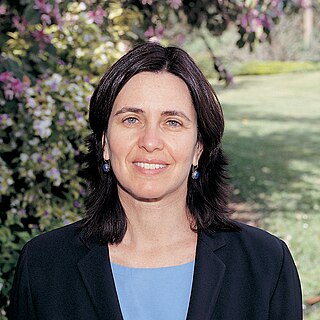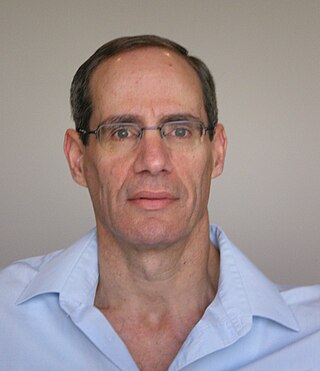
Adi Shamir is an Israeli cryptographer and inventor. He is a co-inventor of the Rivest–Shamir–Adleman (RSA) algorithm, a co-inventor of the Feige–Fiat–Shamir identification scheme, one of the inventors of differential cryptanalysis and has made numerous contributions to the fields of cryptography and computer science.

Michael Oser Rabin is an Israeli mathematician, computer scientist, and recipient of the Turing Award.

Amir Pnueli was an Israeli computer scientist and the 1996 Turing Award recipient.

Judea Pearl is an Israeli-American computer scientist and philosopher, best known for championing the probabilistic approach to artificial intelligence and the development of Bayesian networks. He is also credited for developing a theory of causal and counterfactual inference based on structural models. In 2011, the Association for Computing Machinery (ACM) awarded Pearl with the Turing Award, the highest distinction in computer science, "for fundamental contributions to artificial intelligence through the development of a calculus for probabilistic and causal reasoning". He is the author of several books, including the technical Causality: Models, Reasoning and Inference, and The Book of Why, a book on causality aimed at the general public.

Shafrira Goldwasser is an Israeli-American computer scientist and winner of the Turing Award in 2012. She is the RSA Professor of Electrical Engineering and Computer Science at Massachusetts Institute of Technology; a professor of mathematical sciences at the Weizmann Institute of Science, Israel; the director of the Simons Institute for the Theory of Computing at the University of California, Berkeley; and co-founder and chief scientist of Duality Technologies.
Johan Torkel Håstad is a Swedish theoretical computer scientist most known for his work on computational complexity theory. He was the recipient of the Gödel Prize in 1994 and 2011 and the ACM Doctoral Dissertation Award in 1986, among other prizes. He has been a professor in theoretical computer science at KTH Royal Institute of Technology in Stockholm, Sweden since 1988, becoming a full professor in 1992. He is a member of the Royal Swedish Academy of Sciences since 2001.
Allan Bertram Borodin is a Canadian-American computer scientist who is a professor at the University of Toronto.

Joseph Yehuda Halpern is an Israeli-American professor of computer science at Cornell University. Most of his research is on reasoning about knowledge and uncertainty.

Noga Alon is an Israeli mathematician and a professor of mathematics at Princeton University noted for his contributions to combinatorics and theoretical computer science, having authored hundreds of papers.

Avi Wigderson is an Israeli computer scientist and mathematician. He is the Herbert H. Maass Professor in the school of mathematics at the Institute for Advanced Study in Princeton, New Jersey, United States of America. His research interests include complexity theory, parallel algorithms, graph theory, cryptography, distributed computing, and neural networks. Wigderson received the Abel Prize in 2021 for his work in theoretical computer science. He also received the 2023 Turing Award for his contributions to the understanding of randomness in the theory of computation.
Omer Reingold is an Israeli computer scientist. He is the Rajeev Motwani professor of Computer Science in the Computer Science Department at Stanford University and the director of the Simons Collaboration on the Theory of Algorithmic Fairness. He received a PhD in computer science at Weizmann in 1998 under Moni Naor. He received the 2005 Grace Murray Hopper Award for his work in finding a deterministic logarithmic-space algorithm for st-connectivity in undirected graphs. He, along with Avi Wigderson and Salil Vadhan, won the Gödel Prize (2009) for their work on the zig-zag product. He became a Fellow of the Association for Computing Machinery in 2014 "For contributions to the study of pseudorandomness, derandomization, and cryptography."

Micha Sharir is an Israeli mathematician and computer scientist. He is a professor at Tel Aviv University, notable for his contributions to computational geometry and combinatorial geometry, having authored hundreds of papers.
Eli Upfal is a computer science researcher, currently the Rush C. Hawkins Professor of Computer Science at Brown University. He completed his undergraduate studies in mathematics and statistics at the Hebrew University, Israel in 1978, received an M.Sc. in computer science from the Feinberg Graduate School of the Weizmann Institute of Science, Israel in 1980, and completed his PhD in computer science at the Hebrew University in 1983 under Eli Shamir. He has made contributions in a variety of areas. Most of his work involves randomized and/or online algorithms, stochastic processes, or the probabilistic analysis of deterministic algorithms. Particular applications include routing and communications networks, computational biology, and computational finance.

Nir Shavit is an Israeli computer scientist. He is a professor in the Computer Science Department at Tel Aviv University and a professor of electrical engineering and computer science at the Massachusetts Institute of Technology.

Orna Grumberg is an Israeli computer scientist and academic, the Leumi Chair of Science at the Technion.

Tal Rabin is a computer scientist and Professor of Computer and Information Science at the University of Pennsylvania and a Director at Amazon Web Services (AWS). She was previously the head of research at the Algorand Foundation and the head of the cryptography research group at IBM's Thomas J. Watson Research Center.
Robert B. Schnabel is an American computer scientist. He was executive director and CEO of the Association for Computing Machinery (ACM) from November 1, 2015 to 2017. He is now professor and external chair of computer science at University of Colorado Boulder.
Elchanan Mossel is a professor of mathematics at the Massachusetts Institute of Technology. His primary research fields are probability theory, combinatorics, and statistical inference.
Alla Sheffer is a Canadian researcher in computer graphics, geometric modeling, geometry processing, and mesh generation, particularly known for her research on mesh parameterization and angle-based flattening. She is currently a professor of computer science at the University of British Columbia.
Ben-Zion (Benny) Chor was an Israeli computer scientist. He was known for his research in cryptography, including traitor tracing, randomness extractors, private information retrieval, the security level and single-bit security of RSA encryption, and secret sharing. Beyond cryptography, he also made important contributions in distributed shared-memory consensus and in the discovery of patterns in gene expression data.











